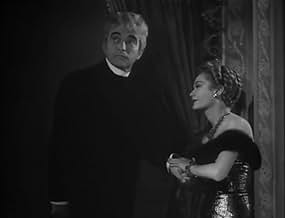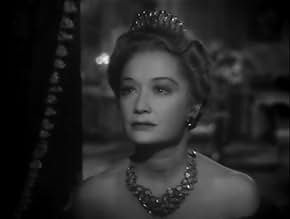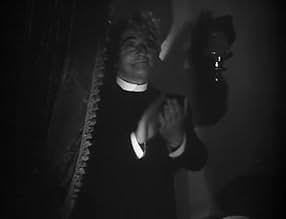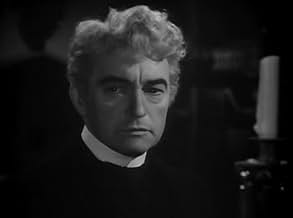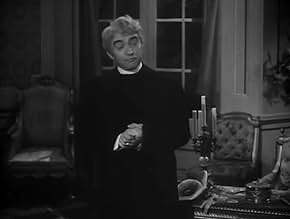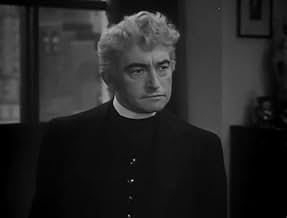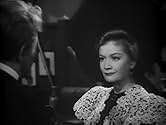Añade un argumento en tu idiomaA messy divorce leaves Mrs. Leslie Carter shunned by Chicago society for being an adulteress and forbidden from having custody of her son. She's determined to return to her hometown in a few... Leer todoA messy divorce leaves Mrs. Leslie Carter shunned by Chicago society for being an adulteress and forbidden from having custody of her son. She's determined to return to her hometown in a few years as a success and with enough money to fight to get her son back. In order to realiz... Leer todoA messy divorce leaves Mrs. Leslie Carter shunned by Chicago society for being an adulteress and forbidden from having custody of her son. She's determined to return to her hometown in a few years as a success and with enough money to fight to get her son back. In order to realize her plans, she heads to New York with ambitions of being a great actress. Despite having... Leer todo
- Dirección
- Guión
- Reparto principal
- Premios
- 2 premios en total
- Dudley Carter
- (as Johnnie Russell)
- Mrs. Peabody
- (sin acreditar)
- Miss Humbert
- (sin acreditar)
- Man in Belasco's Outer Office
- (sin acreditar)
- Observer on Courthouse Steps
- (sin acreditar)
- Audience Member
- (sin acreditar)
- Scenic Artist
- (sin acreditar)
Reseñas destacadas
Like "Yankee Doodle Dandy," "The Lady With Red Hair" brims over with old -time show-business flavor. (Among other things, both films feature delicious theatrical boarding-house sequences as well as the inevitable scenes set backstage and in theatrical managers' offices.) Also, in "Lady" as in the Cohan biopic, the supporting cast is made up of familiar and beloved character actors of the period, all doing the sort of top-notch work we remember them for.
Need I add that, again like "Yankee Doodle Dandy," "The Lady With Red Hair" doesn't let the truth get in the way of telling a good story? But, also like "Dandy," "Lady" does manage--gloriously!--to convey the esssence of its show-business-giant hero's larger-than-life personality. Everyone knows that Cagney limned Cohan for all time in his brilliant and affectionate portrayal in "Yankee Doodle Dandy"--but few moviegoers realize that Claude Rains did a similar service for David Belasco in "The Lady With Red Hair"- -and did it with a panache that almost equals Cagney's.
Rains-as-Belasco perfectly captures that legendary showman's galvanic personality in all its outsized glory. Rains gives a tremendously enjoyable , superbly observed, and remarkably true-to-life performance as the man all Broadway once called "The Wizard." To watch Claude Rains in action (looking in every shot as if he's having a helluva good time!) in "The Lady With Red Hair" is to see David Belasco leap to life on film as if he can't wait to shake things up on the Main Stem once again.
The real Mrs. Leslie Carter had one of her final roles before her death in 1935's Becky Sharp, which may have played a part in Hopkins wishing to do this biopic. From what I can gather, much of the material in the movie is fictitious, designed to make Carter look like more of victimized saint, when naturally the truth is much murkier. One wouldn't also gather why Carter was considered a sensation, as all of the play reenactments in the film are hammy and phony. Hopkins never manages to be likable, and I say this as someone who has liked Hopkins in a number of other things. Rains also gets shout, scowl, yell, thrash around, and then shout some more. Speaking of bad wigs from The Howards of Virginia, Claude sports one here. The most worthwhile scene in the whole movie was a catty dinner scene at a boarding house for theatrical people.
I'm a real fan of Hopkins. I'm not a huge fan of 1920s or 1930s film, so my fascination with her is limited to the 1940s and beyond. Let's face it, she could deliver her lines as fast as a racing horse. And she excelled in doing so.
This is pure Hollywood fare. It flows as such. Tons of plot loopholes. Cliche dialogue. Over the top execution. Relax and enjoy. Stop over-analyzing.
However, as the very theatrical title lady, MIRIAM HOPKINS gives an over-the-top melodramatic touch to her entire role, making it seem implausible that theater patrons would give her "acting" such a standing ovation. Indeed, the worse part of the film is when it shows Hopkins practicing her art or giving a demonstration of her talent as a stage actress.
The other flamboyant performance is given by CLAUDE RAINS, but rightfully so, since he's playing David Belasco who apparently liked to "ham it up" at every opportune moment whether teaching others how to act or simply acting up a storm in his personal life.
Director Curtis Bernhardt has done nothing to keep Hopkins or Rains from all the theatrical excesses they bring to their characterizations, but we do get some good supporting work from HELEN WESTLEY as the boarding home owner, LAURA HOPE CREWS (as Miriam's mother), JOHN LITEL as a producer, and many other Warner contractees. But RICHARD AINLEY is colorless in the sort of part that could easily have gone to CORNEL WILDE, who instead has a bit part as a wannabe actor at the boarding house. Ainsley's performance is wooden indeed and pales opposite the strident and mannered acting of Hopkins.
Interesting but something about the screenplay suggests that much was altered and cut in producing this film based on Leslie Carter's memoirs. Little JOHNNY RUSSELL appears briefly in two scenes as Carter's son, the one she loses custody of in a court battle. (He played Shirley Temple's little brother in THE BLUE BIRD shortly before this film).
Belasco was not flawless. He was an egomaniac, who insisted on total obedience to his direction if anyone sought him as an acting mentor (as Mrs. Carter did). He was also determined to be memorable as a personality, going about in a suit reminiscent of the Roman Catholic Church (he basically dressed like a priest). While he did improve the acting of his period, his taste in drama tended to be of the melodramas and sentimental play variety. Brooks Atkinson (in his book, Broadway) dismissed him as a ham and poseur, but he was better in bringing a professional structure to acting. Too frequently in that period actors were not as prepared or controlled to give their audiences their money's worth of good acting.
Mrs. Leslie Carter was a minor socialite from the midwest who wanted to go on stage. In the movie she is played (rather well) by Miriam Hopkins. Mrs. Carter got involved in a messy divorce from her husband, in which she lost custody of her only son. Under Belasco's tutalage she became one of the leading female stars of her age. She did try to resume her relationship with the son, but she was so involved in building her art and stage reputation her son was nearly ten when she saw him again. The relationship was never resumed. As for her career it blossomed, but she decided to remarry. Belasco expected to be consulted and wasn't, so he broke with her.
After a decade of floundering, a rapproachment with Belasco was arranged, and her career resumed it's previous success.
As an interesting slice of theatrical history THE LADY WITH RED HAIR (which, ironically, is a black and white film) is worth watching. Rains and Hopkins give their typically best work in their lead roles. I would definitely recommend the film.
¿Sabías que...?
- CuriosidadesLouis Payne, the husband of Mrs. Leslie Carter in real life, coached Richard Ainley, who was playing him in the movie.
- PifiasNone of the Broadway plays mentioned in the movie were performed by Mrs. Leslie Carter. Her Broadway debut was in a play called "The Ugly Duckling" in 1890, not "The Way of Beauty." Her second play was "Zaza," not "The Lady From France." It is not known why the names of her plays were changed.
- Citas
David Belasco: The scene is finished... either applaud or get out of the way.
- Banda sonoraTwinkle, Twinkle, Little Star
(uncredited)
Traditional
Played offscreen at the start of Miss Humbert's school sequence
Selecciones populares
Detalles
- Duración1 hora 18 minutos
- Color
- Relación de aspecto
- 1.37 : 1
Contribuir a esta página



